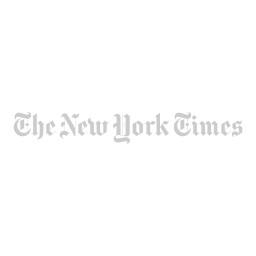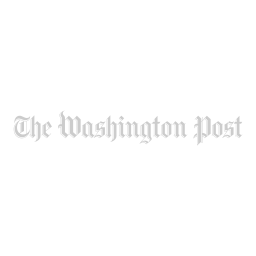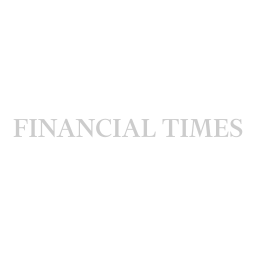Everyone has lost their damn minds.
I’m answering questions from creative professionals around the world on the impact of Coronavirus (and now its variants) on their wedding businesses.
This two-part question is from a luxury wedding planner in the United States:
Part 1
What do you think about events this Fall? Are we headed toward another shut down in the US?
I read your post from earlier this week and was feeling for that planner in England. I’m also wondering about ultimate responsibility from planners right now. Are we the ones that are fully responsible for telling each and every guest the ever-changing rules and regulations of Covid? Are we the only ones responsible for this? Where is the line? Should other vendors be responsible as well?
It’s in our contract now that we aren’t responsible but I’m going to make up a separate document that clients sign moving forward of what we are responsible for and what we are not responsible for. We are only here to guide the client. The clients should be fully responsible, in my opinion.
Part 2
The second part of my question is about client expectations. Expectations are through the roof right now, almost to the point of being unreasonable.
Plus, I feel like they are in complete denial that they are getting married. Our client for this weekend added 60 guests on Sunday. They are spending over $700,000 on their wedding and she still hasn’t sent us the final seating chart and the wedding is tomorrow. It’s like they don’t care or they’re truly on another planet or they’ve waited this long and they just can’t deal with it . . . I’m not sure, but it’s bizarre.
Earlier this week we also had a client question what “full service” is because she doesn’t feel we’ve done enough. We’ve been working with them for three years now and this is their fourth reschedule of their wedding day. My email back to her was not so nice. I’m really at my point of no return with some of these people.
We are one of the only industries that deal in live unrehearsed events and production where we only get one shot. We are making snap-second decisions that effect hundreds of people. Now we are short staffed, short on flowers and food and materials in the middle of a pandemic and still the show must go on. We have had to rework entire weddings on site with little staff and clients have no grasp of reality. Clients think it’s business as usual because we make them believe the magic. But where is the line? I know we are known for pulling rabbits out of our hats, but it’s almost too much. Or is it?
I didn’t charge any change fees last year and I’m regretting it a little. Our jobs are harder than ever right now and everyone has lost their damn minds.
Answer from Liene:
Part 1
WHAT TO PREPARE FOR IN THE US
No, I don’t believe that we are headed for another shut down in the United States. That isn’t to say that it 100% won’t happen if the spread of Delta continues to worsen, but I believe that big companies (more so than the federal and local governments) will do everything in their power to avoid another shut down.
While a potential second shut down should always be in your contingency plans, even if it is unlikely, wedding professionals in the United States need to be prepared for vaccine mandates and mask requirements.
We’re already seeing this shift this week, with influential companies like Netflix, Walmart, Google, Facebook, Shake Shack, and — as of yesterday — Disney requiring their employees to be fully vaccinated. In the case of Shake Shack, all customers will be required to show proof of vaccination as well.
All of these companies are publicly traded on the stock market and aren’t willing to risk another economy-crashing hit if it’s in their power to avoid it. They have a legal fiduciary duty to their stockholders and have decided that vaccine mandates are a way to protect that. Also, these companies can and do hire the best specialist attorneys in the world and run all sorts of financial projections and legal analysis . . . there is no way they would be requiring vaccines if they thought there was a real chance of them losing a potential Supreme Court case.
In addition, the recent outbreak cluster in Provincetown, Massachusetts shows that vaccines work (zero deaths), but also shows why masks matter even more with the Delta variant, which can cause a viral load of 1000x the original strain, making it much more contagious. This explanation from a virologist gets into the “why” of it all, but basically, Delta camps out in your nose for a bit and the vaccine prevents it from migrating down to your lungs and doing real damage. So even if you are vaccinated, you can still spread Delta while it is living in your nasal passage, and you may not even realize you have it. This is why masks are being required again at major retailers.
HOW THIS IMPACTS WEDDINGS AND EVENTS
Armed with this knowledge, we can potentially see hospitality parent corporations requiring all of their employees for their various hotel brands to get vaccinated (Marriott has said they won’t mandate it, but that was before Disney’s announcement and, frankly, Disney sets the standard), we can see independent venues requiring it, we can see more restaurants requiring it (Shake Shack may be fast-food, but its founder Danny Meyer is a heavy hitter in that industry with four of the other restaurants he founded being awarded Michelin Stars), and we can definitely see all of these places requiring masks again (many already are), even if the local county and city governments do not.
In the same way that many venues require wedding pros to show proof of insurance liability certificates, we can also expect a lot of these companies to extend the proof of vaccination requirement to third-party vendor partners — such as wedding and event professionals — doing any type of work on their properties. This means that even if a wedding pro is hired by a couple, if they are not vaccinated, they won’t be allowed on site to do the wedding.
And if — like Shake Shack and the rest of Danny Meyer’s restaurants — they extend the vaccine requirement to customers, that will throw a logistical challenge in the mix for wedding professionals.
A couple questions to consider as you continue to plan for future events:
If vaccines are mandated for customers and guests, who enforces it?
Will you need to hire security for guests who might try to show up anyway?
Will you be expected to distinguish between authentic and fraudulent vaccine cards? (The EU has a digital verification system in place, the US does not).
The case of Shake Shack has raised a key question that applies elsewhere as well: are they expecting 17 year old cashiers to enforce this in the (literal) face of screaming customers? They have yet to clarify how this customer mandate is going to be carried out, but assigning that task to normal employees without giving them a major pay raise or bonus is a huge ask, in my opinion.
From a design perspective, another situation to consider is whether or not some level of social distancing with event furniture and dance floors is likely to be mandated again, given the way Delta spreads even among the vaccinated (we are already seeing infections from recent events where they returned to a pre-pandemic layout of 400 seats in a ballroom all set super close to each other with unmasked guests). Having backup schematics prepared and ready to go in case of new mandates is a good idea.
I don’t have a clear yes or no answer for any of this, but I will say that these are potential situations and questions that need to be considered, especially if you are a wedding planner, wedding venue owner, or event designer.
I also want to acknowledge that all of this is messy and hard. Nothing about this is easy.
THE ISSUE OF RESPONSIBILITY
As for where the line is on what planners are responsible for, I would talk to an attorney regarding your specific liability. I know that is not the answer people want to hear because attorneys are expensive, but simply adding something to your wedding contract or an addendum does not necessarily make it legal.
As I mentioned to the wedding planner in England, I am an advocate for creating a paper trail showing that you were not negligent with communication and that you are not professionally incompetent. This isn’t legal advice, but in my experience a paper trail never hurts. Even if the conversations are via phone, follow up each call with an email that recaps the key points discussed so that you have it in writing.
Enforcing all of these mandates and navigating these murky waters of legal liability is where it all gets logistically and emotionally complicated. And while I do agree that responsibility should be shared, in reality we know that the bulk of it will unfairly fall to wedding planners and event venues.
I apply this specific piece of advice from author Regina Brett to a lot of things, but I believe that it is particularly apt these days: “Over prepare and then go with the flow.”
Part 2
I want to thank you for sharing the second part of this because you are not alone with wedding clients acting in this manner and I believe it’s important for other wedding professionals to hear that they are not alone in it, either.
I see a couple of things at play here:
The first one is that this is not in your head — there has been a collective sense among pandemic couples of, “Eff it, at this point I just want to get married” and so the logistical details that do matter for the overall production are not being taken as seriously.
While a small handful of these couples are naturally laid back, the majority are responding this way due to overwhelm. Not overwhelm driven by their wedding vendors (I know you are good at your job), but just overwhelm as a response to the trauma of the past year and a half.
Unfortunately, this means that even the few wedding tasks they personally need to attend to are too much of a mental load to deal with and so they get pushed to the back burner.
LACK OF EDUCATION VS ENTITLEMENT
The second issue is that for each of your wedding clients, you need to figure out if it is a lack of education on the topic that is driving these increased expectations or if it is entitlement (or both).
Sure, a bride or groom may hear about the flower shortage in passing or see a brief mention of it on a sign at Trader Joe’s or Whole Foods, but then they scroll through Instagram where all the wedding content has florals dripping from the ceilings and it’s like, “Um . . . flower shortage where?”
There is an argument to be made that wedding pros get paid to shield their clients from the stressful parts of the process and I tend to support that argument . . . to a point.
It is unfair to expect a client to understand what goes on behind-the-scenes and how it impacts them and why they suddenly need to increase their budget to cover the same amount of product when the only behind-the-scenes that gets shown is a rental warehouse walkthrough or a moodboard mockup with linen swatches.
It is possible to share what the industry is dealing with in a way that doesn’t disparage anyone or come across as you complaining about your job.
When you are marketing your expertise, I do believe you can show what goes into making that magic happen without overburdening your clients (or IG followers) with the stressful feelings or emotions of it.
And if you go this route, this information definitely shouldn’t be hidden solely in Instagram stories or video content. You can make the videos, but provide actual text for search engines and captions for the people who are skimming Instagram at night with the volume off so they don’t wake their partner.
I would also add that with the shortages right now, the lack of education isn’t just with clients. The various sectors of the wedding industry don’t necessarily know what the rest of the industry is dealing with.
There are plenty of florists who don’t realize that caterers are dealing with similar shortages, just with food.
There are wedding photographers and videographers who don’t realize that wedding venues and event rental companies are dealing with inventory and delivery issues because of continued disruption in the cargo and transportation industries.
We’re all in our little bubbles trying to make up for lost time and revenue from last year and the only places any of this really gets discussed is in private Facebook groups. None of it is public in a way that is furthering wedding client (and peer) education.
The fact of the matter is these shortages and disruptions do drive costs up and it is not a matter of wedding pros being greedy and trying to charge more. That said, a client is not going to be comfortable forking over even more money if they have no clue that getting certain flowers is pretty much the equivalent of pulling a rabbit out of a hat right now.
These facts cannot be something they’ve heard only from you. Trust is built when they’ve heard it from multiple sources, and as an industry we need to do a better job of talking about this on the public platforms we have. Solving this industry-wide issue will require a real “community over competition” mindset from everyone.
If the expectations are simply because of entitlement, then . . . whew. Good luck. This pandemic has brought out an ugly side of a lot of people and I am sorry you are having to deal with it.
As for the bride who passive-aggressively accused you of not doing enough after three years and four reschedules due to government shutdowns outside of your control . . . I will admit that I laughed out loud at the sheer AUDACITY of her behavior. I know it isn’t funny, but some people have seriously lost the plot here and sometimes all you can do is laugh.
PRACTICAL WAYS TO NAVIGATE THIS
In theory, firing the extremely entitled people as clients is an option but because of the pandemic it is not a financial choice a lot of wedding vendors have the luxury of making right now.
If you’re in that boat or just want to stick it out, I would recommend the paper trail method, getting them down the aisle with your best cheerleader smile, and then implementing new policies or procedures for future clients.
If the policies are legal in nature, again I would run them by an attorney. But for others, it may be an issue of more clearly defining and communicating boundaries.
For example, making it clear that they can email or text at any time but that you will only respond during certain hours (using WhatsApp Business is an easy way to manage this — you can set it up with a separate number on your same phone so that clients don’t have access to your personal number).
On another practical note for not letting the audacious entitlement get to you, I would recommend meditation. I’m fully aware that I sound like a vegan when it comes to how I talk about meditation but I do believe that it can be hugely beneficial for managing the extra stress the job requires right now. I meditate daily and recently finished my 650th meditation through the Peloton app. Before that I used Calm and Headspace and liked them too (and if you’re just starting, I recommend Calm’s intro series).
Meditation has changed my life more than anything else ever. I still feel the full range of my feelings but it allows me to step back and view things like I’m watching a movie. It helps me get over things faster. It’s made me happier. It’s empowered me to make better decisions. It gave me the courage to walk away from a toxic work collaboration (that was less collaboration and more being taken advantage of) and my business (and I) flourished afterward. Its benefits have been scientifically proven and it’s something I wish I started back when I first heard of it. So . . . that’s my soapbox on that.
It’s been a long 18 months, and we’re still in the thick of it, even though weddings and events are thankfully back. It’s stressful for so many reasons, and I want to thank you again for being willing to be transparent about what you’re facing. You are definitely not the only planner dealing with all of this right now and your willingness to share is going to help a lot of other wedding professionals feel less alone.
A Splendid Note from Liene:
I’ve been fortunate to have worked with wedding pros from 94 countries over my career and when I say we’re all in this together, I mean we are all in this together.
I am not a blogger, I am a business strategy consultant. This blog is not sponsored nor ad supported and is not how I make my income. I have not taken a dime to help clients (and non-clients) with Covid specific issues and I receive no financial benefit from this.
If you have a Coronavirus-related wedding business question, feel free to reach out. I’ll answer it here on the blog so that we can all navigate these new developments together as best we can. Please send any questions you have to hello@thinksplendid.com and remember there is no such thing as a dumb question.
I’ll be keeping the names anonymous so you don’t have to worry about being attached to a question in a Google search or in case you don’t want a colleague or competitor to know what’s on your mind.
Written by
LIENE STEVENS
Liene Stevens, the founder and CEO of Think Splendid, is an author, speaker, and award-winning business strategist. Armed with $2000, a healthy work ethic, and an undeserved dose of privilege, Liene bootstrapped Think Splendid from a scribble in a notebook to a successful wedding business consulting firm with a client list spanning 97 countries.
























